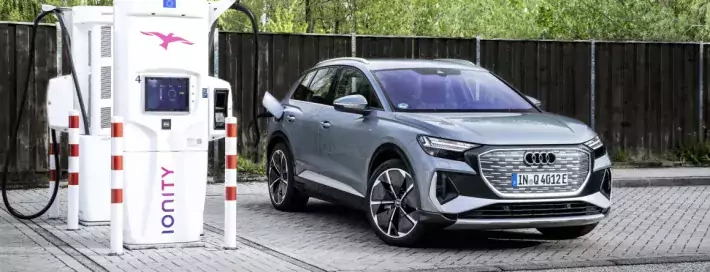Why EV battery degradation is top of the industry’s agenda

Battery degradation is a significant concern for potential used battery electric vehicle buyers. Therefore, organisations across the automotive supply chain are exploring ways of accurately measuring and recording health status to set used BEV prices and reassure potential customers.
The BVRLA is collaborating with the UK Department for Transport and Department for Business and Trade, including the Office for Zero Emission Vehicles (OZEV), to host a half-day event on May 16th. The ‘Deep Dive’ event titled ‘Battery Health: supercharge your knowledge’ aims to promote greater confidence in the used EV market. The event will bring together battery engineers, health-check providers, and industry experts to explore current trends in battery technology and degradation. Auto Trader is partnering with BVRLA for the event.
Maintenance challenges
While there is a commonly held belief that EVs are easier to maintain compared to traditional gasoline or diesel vehicles, research indicates that this may not be strictly true. According to 2021 MOT test data, EVs have a failure rate of 11.43%, which is lower than diesel (15.88%) but higher than petrol (10.85%). Additionally, EVs are 1.9% more likely to fail an MOT test on tyres than petrol vehicles, with 43% of all failure items for EVs related to tyres. This is because EVs tend to use their tyres more quickly than petrol vehicles due to their heavier weight, the use of regenerative braking, and their more efficient driving style.
Therefore, it’s essential that vehicle technicians are skilled in working with EVs. They have different systems, components, and technologies compared to internal combustion engine vehicles. EVs' power systems use high-voltage batteries and electric motors that require specialised knowledge and training for maintenance and repair. Failure to follow proper safety procedures, use appropriate personal protective equipment, and receive adequate training before working on EVs can pose significant risks to technicians, such as electric shock, burn injuries, and even fatalities.
The demand for qualified electric vehicle technicians is growing in the UK, and the IMI predicts that by 2030, there will be a need for 77,000 qualified EV technicians, rising to 89,000 by 2032.
Support for EV Skills Development
The automotive training sector has significant opportunities to deliver Level 2 and above qualifications to support EV skills requirements. More than 235 centers in the IMI network can deliver EV qualifications. Additionally, offering Level 1 qualifications to supporting occupations, such as front of house, customer services, and sales, will ensure that the sector can successfully support the transition to EV.
The UK government has implemented several policies and initiatives to support the growth of EVs in the country, recognizing the importance of reducing emissions. This has led to a growing number of EVs on UK roads and an expanding network of charging infrastructure, making it easier for people to switch to EVs. According to Auto Trader, by 2030, alternative fuel vehicles (AFVs) will make up 34% of the total car parc, with 11.3 million vehicles, and 24% will be pure EV.
Representing the UK Automotive Industry
The IMI is working with the UK government, the devolved nations, automotive manufacturers, and training providers to develop policies and initiatives that support the transition to EVs and ensure that the sector can meet the demand for qualified EV technicians. This includes initiatives such as the IMI TechSafe EV accreditation, which provides assurance to customers that EV technicians have the necessary skills and training to work safely and effectively on EVs.
Industry luminary and respected author, Tom Denton, will attend the BVLRA event, representing those working in the maintenance and repair sector, both in the most practical sense of operations and the equally important aspect of the delivery of training. His insight and experience adding significant value to the research and policy activities of the IMI and OZEV.
Hayley Pells is Policy Manager at the Institute of the Motor Industry




